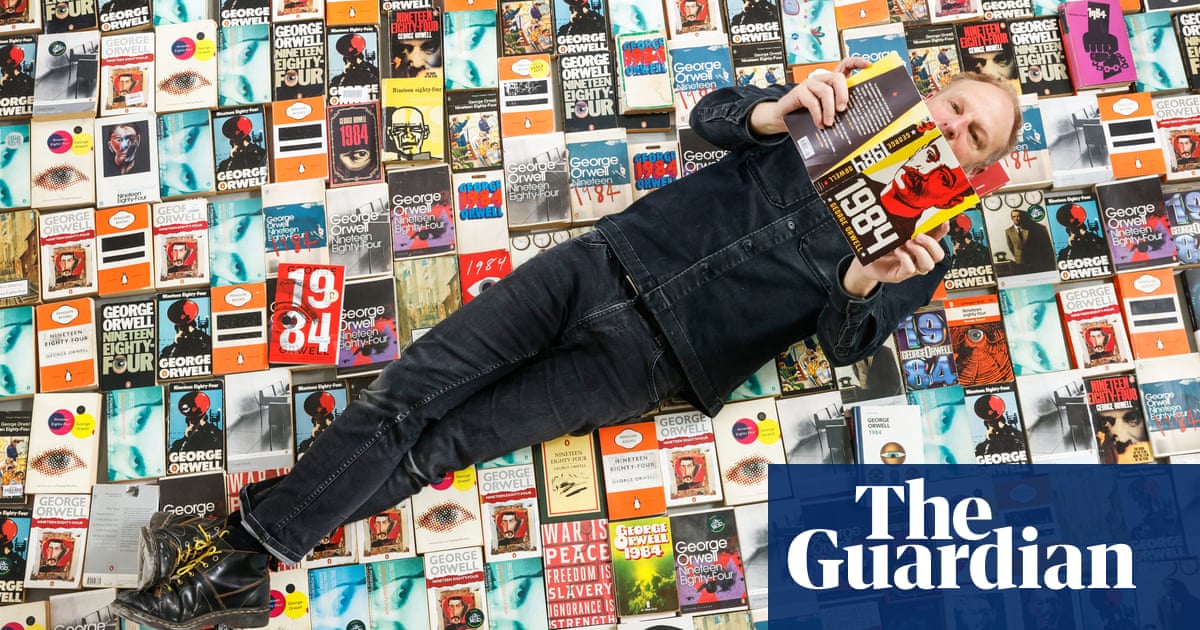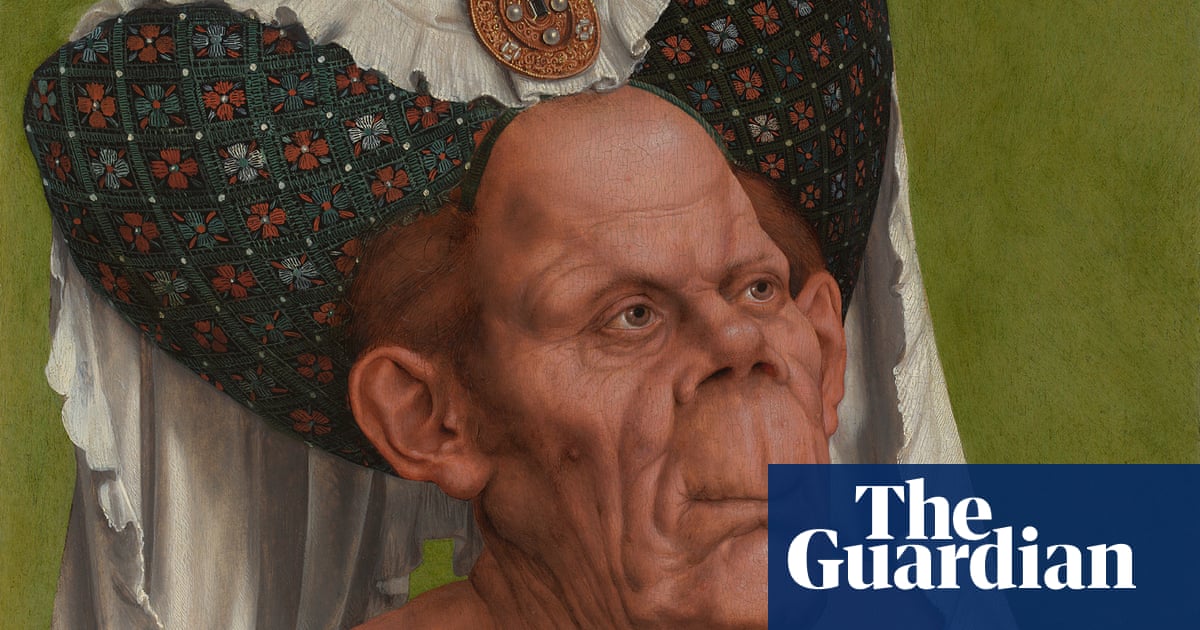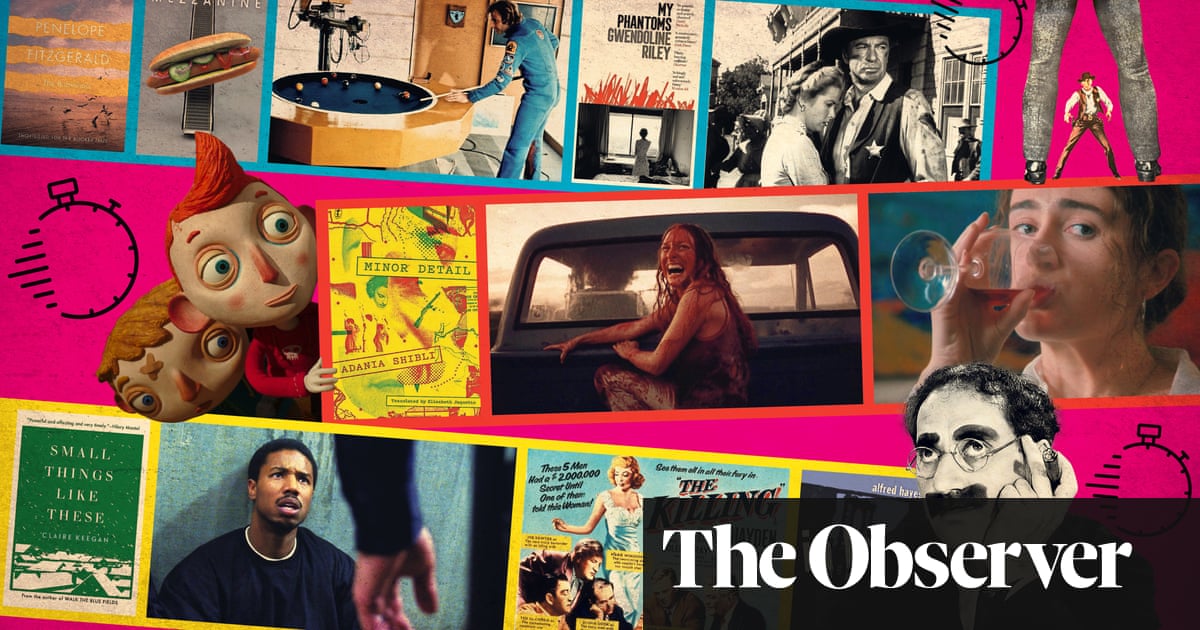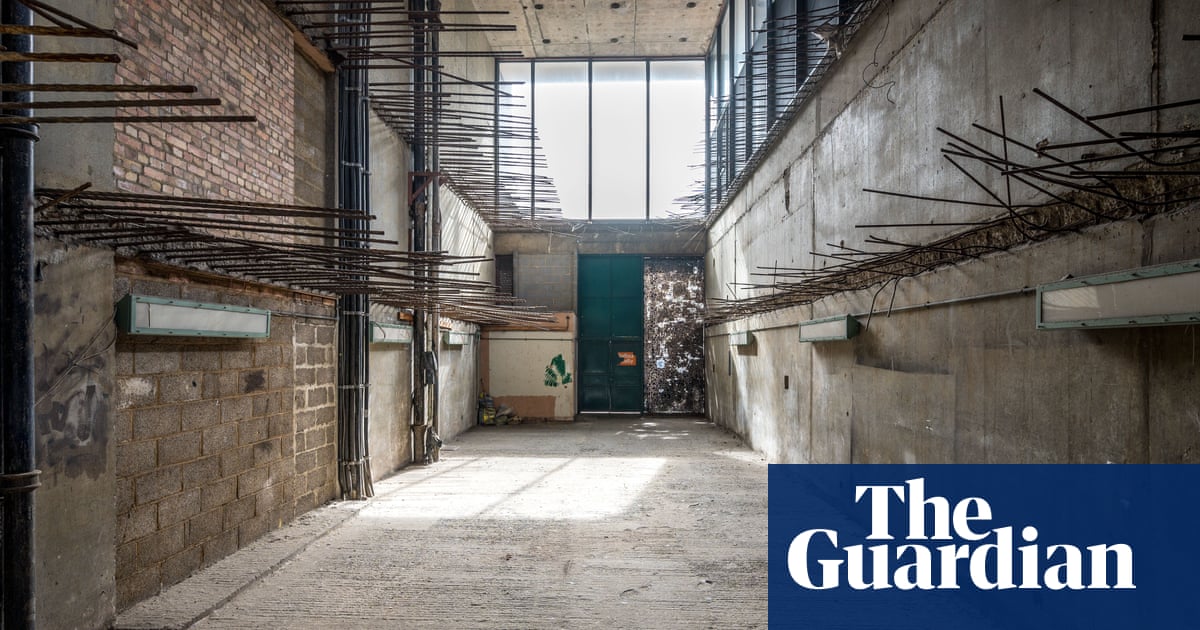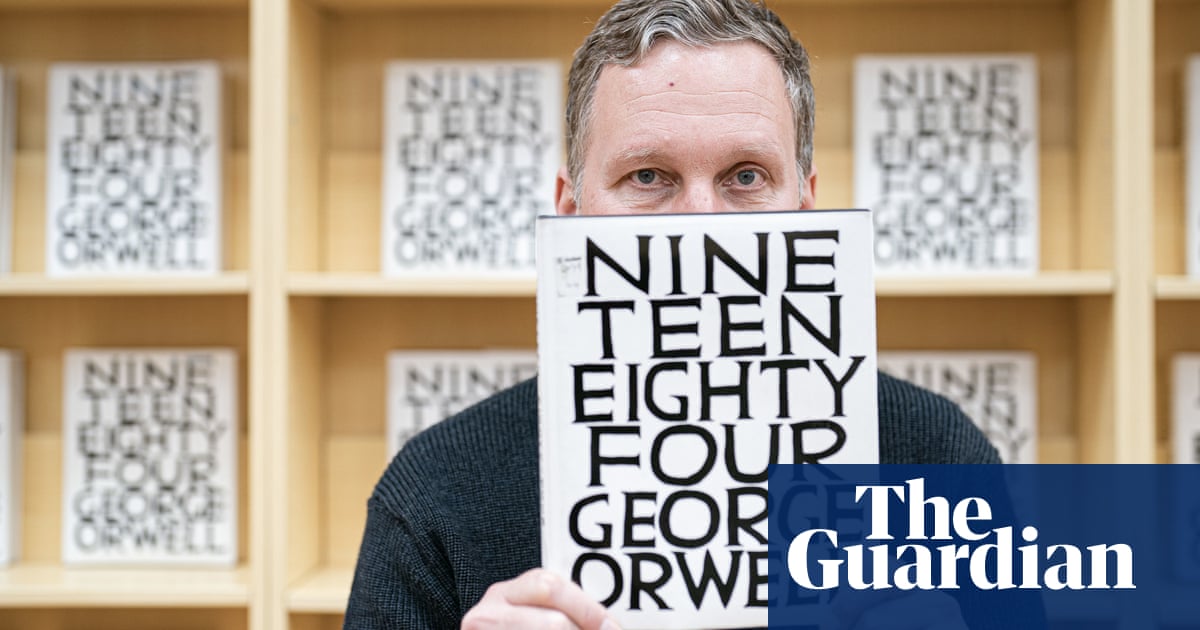
Six years after an Oxfam shop amusingly, but seriously, pleaded for no more copies of The Da Vinci Code, the artist David Shrigley has completed a project to collect 6,000 copies of the novel and recycle them into a new edition of George Orwell’s Nineteen Eighty-Four.
This weekend copies of the new “Pulped Fiction” edition of the Orwell classic will be displayed and sold at the Swansea charity shop that inspired the project.
Shrigley said Nineteen Eighty-Four still had a powerful resonance.
“George Orwell, I think, always intended it to be a warning,” he said. “It wasn’t necessarily a parable of an existing state, but it was kind of a warning of what can happen when we don’t value our democracy.
“We don’t have to think too hard about the way that our current society is ordered to see some parallels.”
Shrigley, regarded as one of the UK’s most consistently funny and perceptive visual artists, came up with the idea after seeing newspaper reports in 2017 about a charity shop pleading for no more copies of the wildly popular Dan Brown novel.
The shop, an Oxfam in Swansea, south Wales, piled up its many copies of the book and placed a sign on them reading: “You could give us another Da Vinci Code … but we would rather have your vinyl! We urgently need more records to help keep our customers happy … and make more money for Oxfam.”
Shrigley noticed it and set about collecting copies of the novel.
He later reread Nineteen Eighty-Four for the first time since he was a student and realised that 2020 was 70 years since Orwell’s death, meaning his novels would be out of copyright.
Discussing his plan with the Guardian in 2021, Shrigley said, with a hint of mischief: “I’ve acquired 5,000 copies of Dan Brown’s The Da Vinci Code, and I’m pulping them all. Then I’m making paper with it and on that paper I’m reprinting an edition of Nineteen Eighty-Four by George Orwell.
“I can do it because nobody wants to buy The Da Vinci Code any more – they just want to deposit it. So that for me is a project about: ‘Wake up! We are sleepwalking into a totalitarian regime!’”
Shrigley said his choice of the 2003 page-turner was not him expressing literary criticism. “It means a lot to a lot of people,” he told the BBC. “It could just as easily be Fifty Shades of Grey, I’m sure there are many thousands of copies of that kicking about.”
He was drawn to The Da Vinci Code because of its abundance and was also interested, he said, in “how we’re sort of primed to think that books shouldn’t be thrown away”.
The narrative of the project was one that occurred by accident, he said, but a number of odd things had happened.
“Getting a book designer involved,” he said. “It turned out that the book designer’s grandfather proofread the original Nineteen Eighty-Four and then his sister actually proofread this version of it.
“That was just one of many very strange coincidences, and sort of odd things that happened along the way. The paper mill we used burned down, for example, which was quite difficult to deal with.”
A total of 1,250 editions of Nineteen Eighty-Four have been made from the unwanted copies of The Da Vinci Code.
In Swansea they will cost £495 for the first 250 customers. The remaining thousand will be sold for £795 on Shrigley’s website.
Alongside the books, Shrigley is releasing a 30-minute documentary telling the story of how the project came to be and the hurdles his studio faced along the way. During the launch weekend there will be free hourly screenings of the documentary at Swansea’s Volcano theatre. Prebooking is required.




